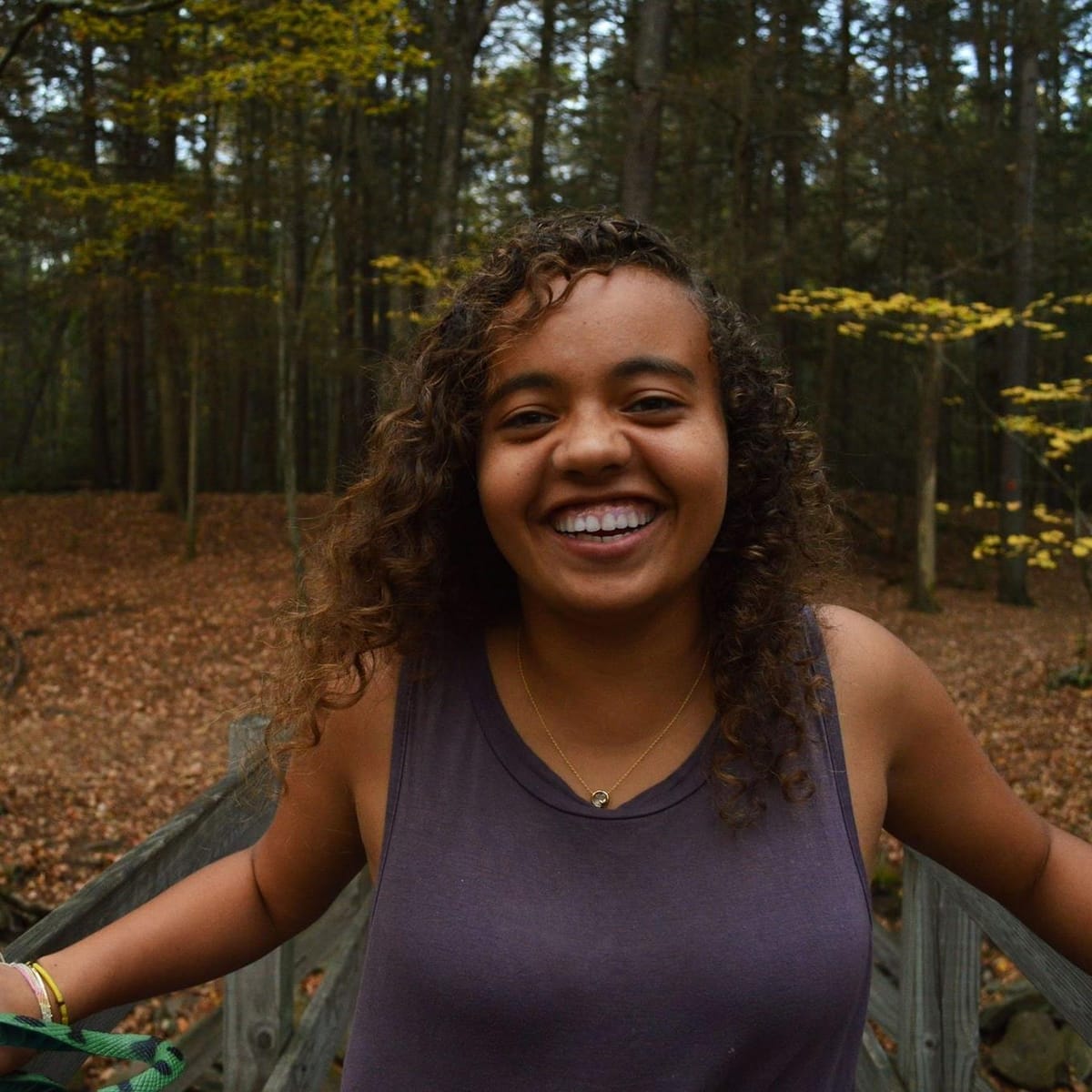Thoughts on Theses: Logan Deming

Logan Deming is an English major. For her thesis, she is writing a creative-critical hybrid piece about breaking out of imposed futures brought upon by heteropatriarchy and white supremacy. Her adviser is Professor of English Alicia Mireles Christoff.
Q: Tell me what your thesis is about. A: I’m doing a creative-critical hybrid — mostly creative — on how marginalized people can break out of what I call “imposed futures.” I’m looking at how people who are marginalized for some part of their identity — I’m focusing a lot on black women, because I am a black woman — and also others can have certain parts of their lives imposed upon them because of heteropatriarchy and white supremacy. There are parts of your future that are inherently imposed from birth, for example, where you live. I’m looking a lot at diaspora. My mom came from Jamaica, and that was a choice for her and her education made by her mother for a future kid, who I am.
Q: Can you tell me about your inspirations for this topic? A: A lot of it comes from two English classes I’ve taken, Decolonial Love and Lives on the Page. In Lives on the Page, we looked at the blurred lines in fiction between autobiography and fiction, like when people take a look at their own lives and fictionalize them to reach a greater truth, or find something new. Decolonial Love looked at the effects of heteropatriarchy and white supremacy in the way we form relationships in a colonial world. I took Lives on the Page my sophomore spring, and my junior year I took Decolonial Love.
Q: What are some materials you’re looking at for this thesis? A: It’s mostly creative, so I’m not really doing as many readings now — I did a lot over the summer. Some that I’m trying to center in my work are “This Bridge Called My Back,” which is a really great book, and “Sassafrass, Cypress and Indigo,” which is a really wonderful piece of fiction I love to read. It has a lot to do with what being free looks like, which is what I want to explore in my thesis. I’m definitely looking at that book a lot. Another is “Brown Girl, Brownstones” by Paule Marshall. There are definitely others, but those are the ones I’m thinking about right now.
Q: Since this is a creative/personal thesis, what stories of your own are you bringing in? A: There are going to be three sections, and my second section is a really personal one. It’s going to be very stream-of-consciousness from my head, and I’m taking a lot of experiences that I had and fictionalizing them in ways that hopefully will be cool. There are some critical aspects — I’m doing essays to introduce each section. The majority of it is creative.
Q: Have you done a lot of creative writing at Amherst? A: Lives on the Page and Decolonial Love were somewhat creative, but other than that, no. I think it’s a really cool way of working through both literature and the world. All of the writing in both of those classes was creative, and I really enjoyed that, so I thought that I might as well try it.
Q: At what point in the thesis process would you say you are at now? A: Right now, I have a rough draft of my first chapter, and I’m working on my second and third. I met with my advisor and her other advisee, Shawna Chen ’20 to make it a more collaborative process.
Q: What’s it like to collaborate on your theses? A: I really enjoy it — I think collaboration is something I should have done more throughout my time at Amherst. Shawna and I have basically been in every English class together, so we know each other’s writing very well, and it’s helpful to have that perspective. It’s really nice to have another reader, and we all get along very well.
Q: What are some other ideas you’ve explored in your thesis? A: I’m trying to look at what imposes a future — part of it is again, heteropatriarchy and white supremacy — but I was talking to [Professor of Black Studies] Dominique Hill last semester, and she brought up how it’s interesting that the self can also impose futures, so I’m also exploring that, as well as diaspora. I’m also going to be looking at ways to break out of isolation, which is something I think I’ve struggled with in the past. I’m going to be looking at what being free actually looks like, and that will be more of a speculative fiction-type work. It’s something I want to explore: how you form relationships in a colonial world, and how those relationships can be a very difficult thing, but also something that saves you.





Comments ()